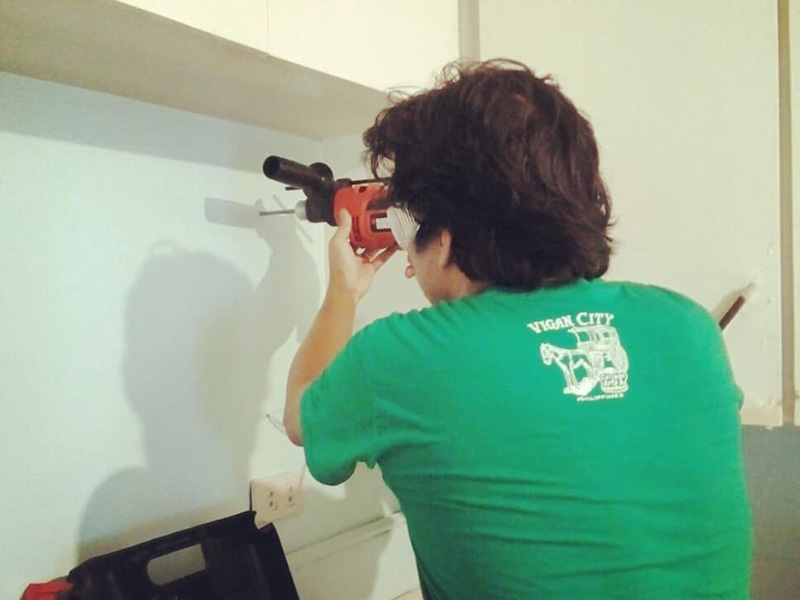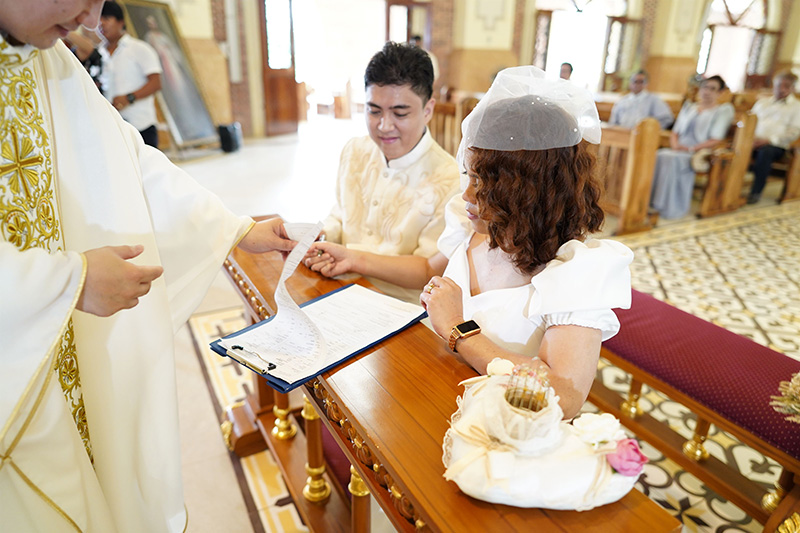Family Life: On Boundary Setting
‘Therefore a man shall leave his father and his mother and hold fast to his wife, and the two shall become one flesh’
Matthew 19:5
I wrote this blog post July of last year, but actually forgot to push it to public. HAHA. But this week had a husband appreciation day, so I figured I could use the opportunity to publish the post. Anyway…
It took more than 6 years of marriage and 11 years of togetherness for me to realize that the man I married is a person who is very protective of his boundaries. Sure, I kinda knew he was the one, not while we were discussing projects in the office, but during the first time we Skype’d and he showed me his tiny apartment, with cute little plants on the balcony that overlooked the Pasig river.
As someone who had dated mostly trust fund babies, I really found his self-built independence super sexy. When I met him, I was taking my PhD and working full-time, the picture of a strong woman. Very jaded, too. He surprised me, though. While this man is 8 years younger than I am—the youngest I’ve ever dated—he had the same craving for autonomy as I do. Do you know how difficult it is to find a Filipino man, much less someone that young, who valued independence? In this country where men still needed mothering even at age 30?

So anyway, despite my misgivings about going into marriage for a second time, I agreed. And even in this, he wasn’t budging. Told me: “If we’re not in this relationship with marriage in mind, we might as well break up because we’ll be wasting each other’s time.” (LOL, I just really liked this guy so I said ok, ok??? HAHAHA.)
In 2017, on our fifth year of exclusively dating, we got married.
And goodness gracious was that the most correct decision I have ever made in my entire life. Because you know what? That streak of independence that I found sexy? It was actually him wanting to set boundaries for himself his entire life, and because we had become one unit, that boundary extended to protect me as well. I should have been clued in on this when we were dating: he hated it when people touched his stuff without permission, and when he hears someone badmouth me, he will take it personally.
I have problems saying no to people, and he isn’t like that. If he knew certain activities would be tiring for us, he’d say no on our behalf. And he will fight you for it, regardless of your position in his life. This is such a refreshing haven for me who had been used to exes who can’t say no to their relatives or would share our relationship problems with their families. This is taboo for us. When we fight, it is between us two. We’re not a religious couple, but for the first time in my entire romantic life, I finally understood what LEAVE AND CLEAVE meant.

Because marriage is supposed to be your SAFE SPACE, not the place where one tries to set boundaries while the other doesn’t care enough to protect it. Even in career decision-making, this is ever present. My husband is aware of my ADHD tax, in that I had to build a system around managing my weaknesses. One of those is that I could not handle extroverted admin work, because it overstimulates me to the point of shutting down both my mental and physical well-being. So one time at work, when we really were in dire need of a temporary chairperson and I was the only one who could fill in the space, my former boss, a father figure, sat down with my husband to sort of ask for his permission to allow me to occupy the position for just 4 months. Just until we could find a qualified replacement. My husband reluctantly agreed, but he had to warn me several times to make sure I’m taking care of myself, and I had to assure him that it was a temporary arrangement.
Because my husband is this way, I learned how to protect our boundaries, too. Thankfully, this isn’t difficult because my parents raised us sibs to be independent and not clingy with each other. In fact, my sister and I moved out of our parents’ house with minimal protest (which only came from our Dad, haha). It’s the [saying no to people even if I know I’m going to get drained] aspect of my personality that had to get fixed, and I worked on this during the pandemic, emboldened by him telling me: “Don’t pretend to be someone you’re not.”

I realize it’s a bit difficult for many Filipinos to set boundaries, so here are some things I’ve learned while on that journey:
- Leaving and cleaving even before marriage or getting into a relationship is just the first step to personal autonomy. I’ve been living on my own for more than a decade before I got married, but it wasn’t until I met a partner who draws a very distinct line that I actually learned how to do this.
- When picking life partners, choose one who considers you a huge part of themselves. My husband always says to me: “Hindi ko pinili ang pamilya kung saan ako pinanganak, pero ikaw pinili ko. Kaya ikaw ang prioridad ko.” (Translation: “I did not choose the family I was born into, but I chose you. And that makes you my priority.”) And he tells me this whenever I feel guilty about us not being present in certain family events.
- Also pick the partner who has a strong sense of autonomy, so that if you become one unit and belong to one home, you BOTH protect that home. If you are weak when it comes to saying no, having a backup with the mental fortitude to do so helps a great deal, especially if he is the husband.
- If you don’t have a partner, and you happen to have a toxic family, moving out may be just the first step, but it is A HUGE ONE. Unless you’ve actually learned how to be an autonomous adult, you won’t be able to imagine the kind of head space freedom that moving out can bring. It’s like, hm…breaking the limit of the Soul Formation Stage into the Soul Transformation Stage (haha sorry, xianxia reference). My family isn’t toxic, but moving out still did wonders for my personal growth.
- Make friends with people who are aiming for autonomy or are already doing it, meaning ones who’ve already been able to financially and emotionally set boundaries for themselves. Independent adulting isn’t something easily understood by people who still live with their parents, so you’ll need a support group.
So far, these are all I could think of. Hope this helps those who are having problems setting boundaries. Till the next post!

Leave a Reply